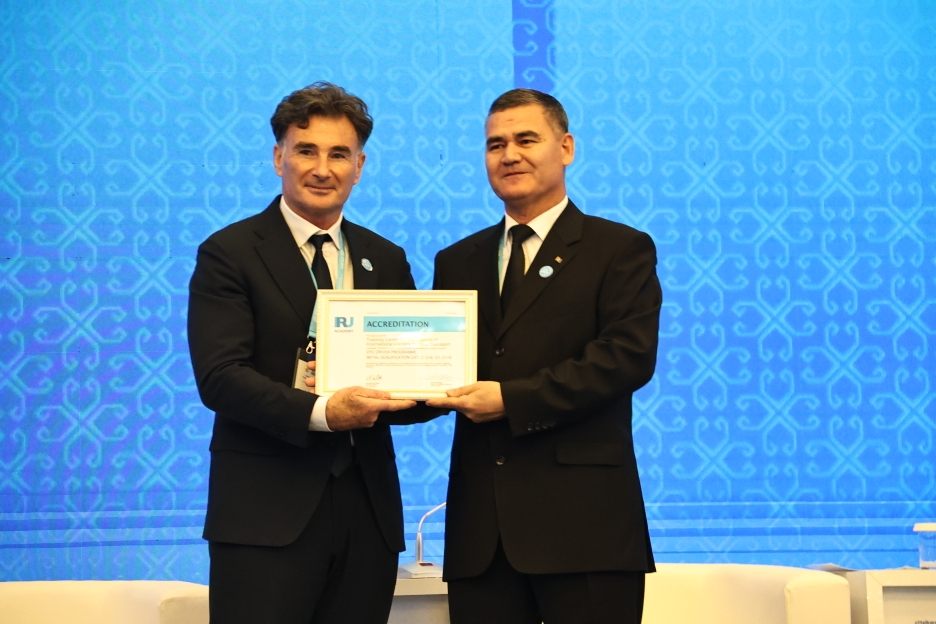On 26 November, the International Conference “International Transport and Transit Corridors: Interconnection and Development” (ITTC-2024) began its work in Ashgabat. The speeches of the plenary session were devoted to topical issues of the development of the transport industry, including strengthening international cooperation, innovation, digitalization and environmental sustainability.
Mammethan Chakiyev, Director General of the Agency for Transport and Communications under the Cabinet of Ministers of Turkmenistan, opened the conference, emphasizing the key role of the transport and communication sector in the development of the national economy and strengthening international cooperation. He noted that Turkmenistan, being located at the intersection of the most important trade routes, is actively implementing initiatives to expand transport corridors. Special attention was paid to the implementation of the initiatives of the President of Turkmenistan related to promoting international cooperation in the field of transport.
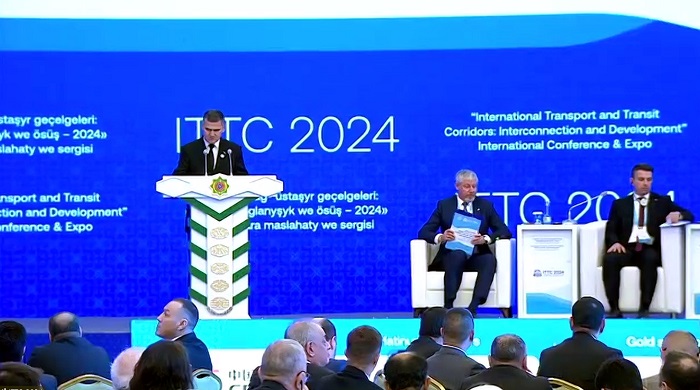 Chakiyev drew attention to strategic projects aimed at developing railway, road, marine and aviation infrastructure, as well as creating favorable conditions for international trade and logistics.
Chakiyev drew attention to strategic projects aimed at developing railway, road, marine and aviation infrastructure, as well as creating favorable conditions for international trade and logistics.
The speaker stressed that Turkmenistan’s transport diplomacy is actively developing opportunities for trade facilitation. noted stressed the importance of reducing transportation time and developing new transport routes connecting Central Asia with other regions of the world.
Umberto de Pretto, Secretary General of the International Union of Transport (IRU), highlighted the critical role of the transport industry in realizing the UN Sustainable Development Goals.
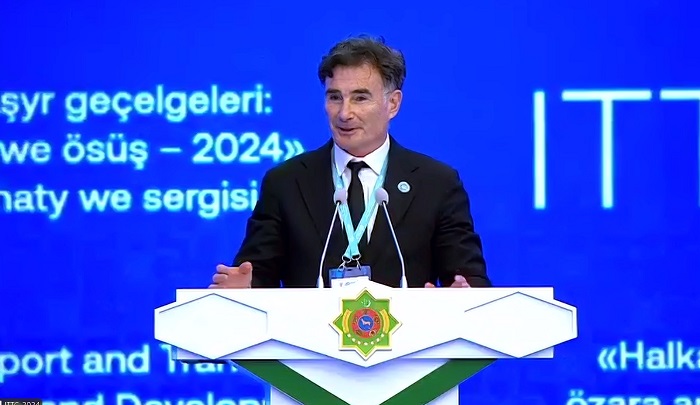 He emphasized the urgent need to address several challenges, notably the acute shortage of qualified drivers. To mitigate this issue, he called for immediate action to attract and train new personnel.
He emphasized the urgent need to address several challenges, notably the acute shortage of qualified drivers. To mitigate this issue, he called for immediate action to attract and train new personnel.
De Pretto advocated for concerted efforts to achieve zero carbon dioxide emissions in the transport sector by 2030.
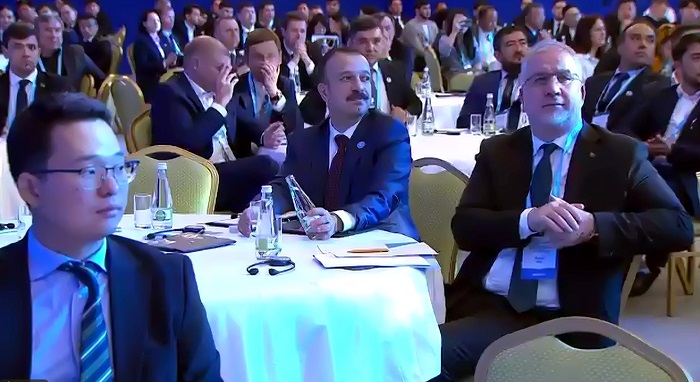 He also addressed the persistent problem of lengthy border crossing procedures, emphasizing that streamlining customs and border control processes is essential to enhance the efficiency of international logistics.
He also addressed the persistent problem of lengthy border crossing procedures, emphasizing that streamlining customs and border control processes is essential to enhance the efficiency of international logistics.
The speaker underscored the transformative power of digitalization in addressing environmental sustainability and economic efficiency concerns. De Pretto stressed the importance of deploying environmentally friendly vehicles and upgrading infrastructure to facilitate their seamless operation.
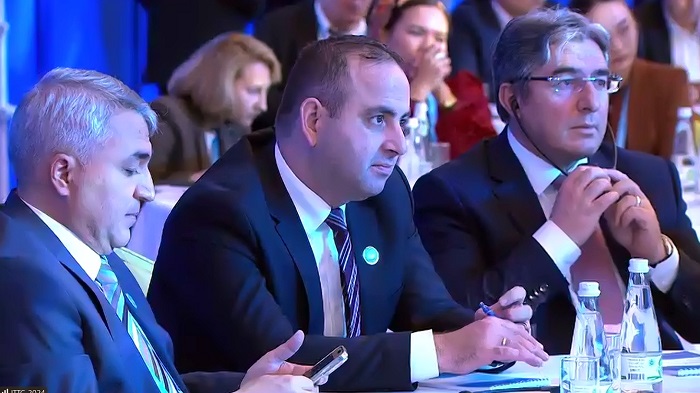 Asset Asavbayev, Secretary General of TRACECA, emphasized the importance of upgrading infrastructure to enhance transportation efficiency within the TRACECA project.
Asset Asavbayev, Secretary General of TRACECA, emphasized the importance of upgrading infrastructure to enhance transportation efficiency within the TRACECA project.
He stressed the need for collaborative efforts to modernize transport systems and develop comprehensive Action Plans to optimize the utilization of existing transport corridors.
Asavbayev paid particular attention to the Trans-Caspian International Transport Route (Lapis Lazuli Corridor), a transit project connecting Türkiye, Georgia, Azerbaijan, and Turkmenistan. He underscored the importance of joint efforts to further develop this route, emphasizing the need for integration and coordination among all stakeholders. Additionally, he highlighted the necessity of transitioning to electronic transport documents to streamline logistics within TRACECA corridors.
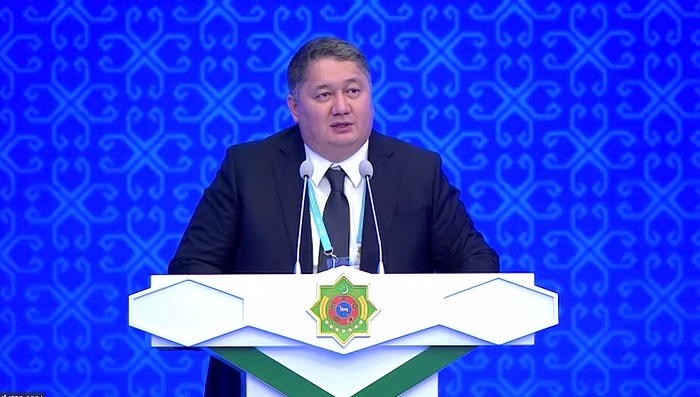 Talgat Lastaev, Deputy Minister of Transport of the Republic of Kazakhstan, stressed the strategic role of Kazakhstan as a key link in international transport corridors such as North–South and East–West. He noted the growth in the volume of container traffic through the territory of Kazakhstan and the work on the development of new services, the elimination of export barriers and the modernization of transport infrastructure.
Talgat Lastaev, Deputy Minister of Transport of the Republic of Kazakhstan, stressed the strategic role of Kazakhstan as a key link in international transport corridors such as North–South and East–West. He noted the growth in the volume of container traffic through the territory of Kazakhstan and the work on the development of new services, the elimination of export barriers and the modernization of transport infrastructure.
Large-scale projects for the construction of new transport routes, repair and reconstruction of existing roads are being realized in Kazakhstan. Special attention is paid to the automation of processes and the introduction of modern technologies so that logistics works as a single well-coordinated mechanism.
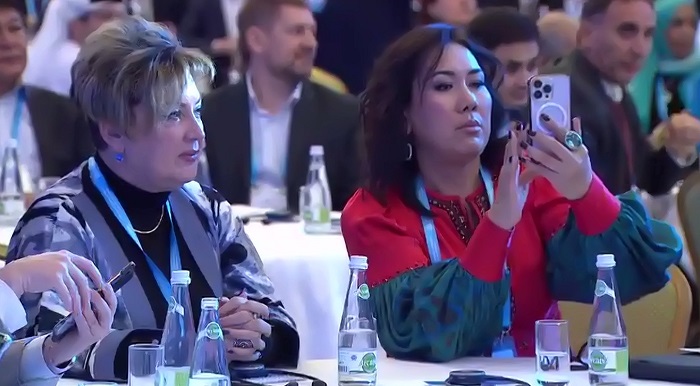 Antonovich Miroslav, Chairman of the Organization for Cooperation of Railways (OSJD), expressed support for the development of sustainable transport.
Antonovich Miroslav, Chairman of the Organization for Cooperation of Railways (OSJD), expressed support for the development of sustainable transport.
He noted the importance of the UN General Assembly Resolution on the proclamation of November 26 as World Sustainable Transport Day. Miroslav congratulated Turkmenistan on the 30th anniversary of the country’s accession to OSJD and noted the importance of developing “green roads” in Turkmenistan. He stressed that key transport corridors (OSJD corridors 3, 8, 10) are already being implemented in the country, as well as new routes are being built, which significantly improves the logistics network and supports the transition to more environmentally friendly transport solutions.
Durmush Ünüwar, Deputy Minister of Transport and Infrastructure of Türkiye, stressed the importance of ITTC-2024 and noted that Türkiye actively supports the development of the transport and logistics industry. He emphasized Türkiye’s pivotal role in the Middle Corridor, connecting Asia and Europe, and its commitment to implementing environmentally friendly transport solutions.
He stressed the importance of joint efforts and regional cooperation, particularly strong ties with Turkmenistan and other regional countries, as key priorities for Türkiye.
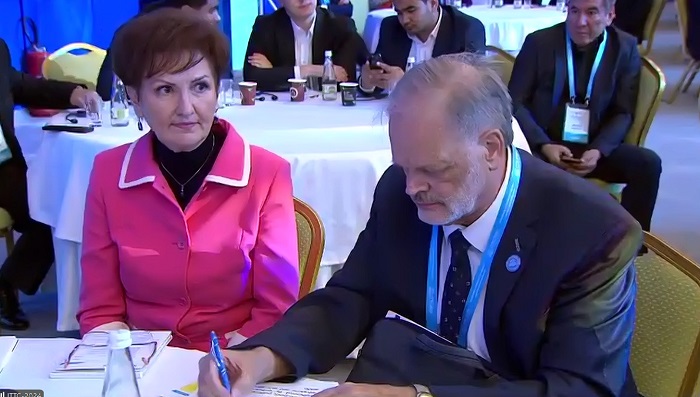 Adrian Y. Foghis, Deputy Minister of Transport and Infrastructure of Romania, stressed the importance of joining forces to achieve common goals in the field of sustainable transport. He noted the importance of addressing the problem of “bottleneck” — congestion of vehicles, which limits uninterrupted transportation. He raised the issue of the need for significant investments, as well as the conclusion of bilateral agreements between the countries involved in the project.
Adrian Y. Foghis, Deputy Minister of Transport and Infrastructure of Romania, stressed the importance of joining forces to achieve common goals in the field of sustainable transport. He noted the importance of addressing the problem of “bottleneck” — congestion of vehicles, which limits uninterrupted transportation. He raised the issue of the need for significant investments, as well as the conclusion of bilateral agreements between the countries involved in the project.
Foghis noted that the effective implementation of such initiatives requires not only drawing up roadmaps, but also determining the priorities and financing issues, including the search for sponsors among international banks.
Shoista Saidmurodzoda, Deputy Minister of Transport of the Republic of Tajikistan, noted the key role of Turkmenistan in the development of transport corridors in the region. She stressed the importance of close cooperation between the Central Asian countries and the development of transit infrastructure.
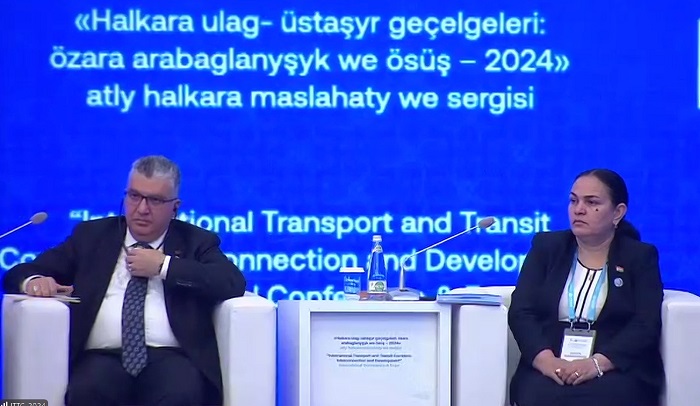 The speaker said that 17 investment projects aimed at modernizing the country’s transport system are being implemented in Tajikistan. Special attention is paid to the introduction of digital technologies in the transport sector, as well as the development of infrastructure within the framework of the National Transport Program until 2030. In particular, a transport coordination center has been opened in the country, which contributes to improving the effectiveness of interaction with international partners.
The speaker said that 17 investment projects aimed at modernizing the country’s transport system are being implemented in Tajikistan. Special attention is paid to the introduction of digital technologies in the transport sector, as well as the development of infrastructure within the framework of the National Transport Program until 2030. In particular, a transport coordination center has been opened in the country, which contributes to improving the effectiveness of interaction with international partners.
Wolfgang Küpper, Secretary General of the Intergovernmental Organization for International Rail Transport (OTIF), noted the key role of railways in the development of international freight transport and the need to develop the Middle Corridor.
According to him, railways can become the basis of sustainable transport and become an important achievement in the implementation of “green” goals aimed at reducing carbon dioxide and improving the environment.
The development of railway infrastructure within the Middle Corridor opens up new prospects for economic integration and sustainable development in Eurasia, supporting trade growth and creating more efficient and environmentally friendly routes for freight transportation.
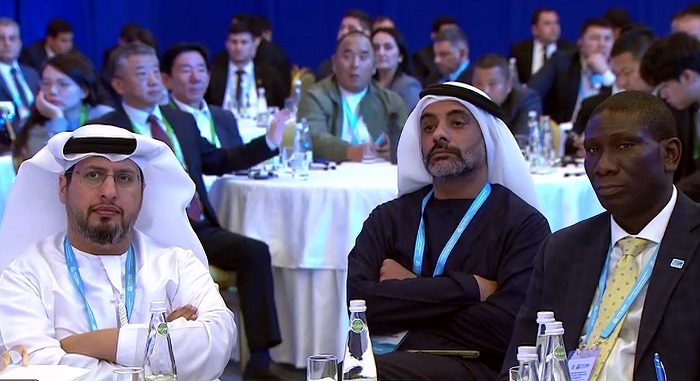 In general, the ITTC-2024 plenary session demonstrated a common commitment to the development of international transport corridors, strengthening cooperation, introducing innovations and achieving sustainable development goals.
In general, the ITTC-2024 plenary session demonstrated a common commitment to the development of international transport corridors, strengthening cooperation, introducing innovations and achieving sustainable development goals.

